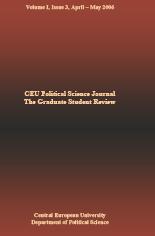Determinants Of Party Unity In Central Eastern Europe
Determinants Of Party Unity In Central Eastern Europe
Author(s): Gabriela BorzSubject(s): Politics / Political Sciences
Published by: Central European University (CEU) - Center for Policy Studies
Summary/Abstract: This paper concentrates on party behavioral unity in Central Eastern Europe and seeks to establish its major determinants. An indirect model of party unity is proposed, which contends that there is a trade off between attitudinal (ideological unity) factors and party centralization in order to achieve party behavioral unity. The analysis is conducted at three levels – the individual, party, and country level (in Hungary, the Czech Republic, Slovakia, and Poland) after 1993. The results show that the level of behavioral unity varies according to the salience of the issues at stake. The electoral mechanisms did not seem to have the expected impact on party behavioral unity and this questions the relevance of existing theories linking party unity and electoral systems. Among the internal party factors like attitudinal homogeneity, party centralization, incumbency status, and party ideology, the only one with a clear influence on the result of votes on the floor is party centralization. Therefore, decreasing the level of internal party democracy helps to increase the level of external democracy of the system.
Journal: CEU Political Science Journal
- Issue Year: 2006
- Issue No: 03
- Page Range: 29-48
- Page Count: 20
- Language: English

